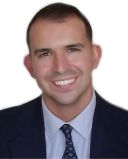Psychopharmacology
Review: 'The Rise and Fall of the Age of Psychopharmacology'
Shorter's latest book on the evolution of drug treatment in psychiatry.
Posted September 25, 2022 Reviewed by Jessica Schrader
Edward Shorter is perhaps the world's best-known historian of psychiatry. His 1997 text, A History of Psychiatry, is the standard textbook in the field—I use it and recommend it in my own teaching of residents on these topics. So, when I saw that he published a new text last year on the history of psychopharmacology, I had to take a look.

The Rise and Fall of the Age of Psychopharmacology (Oxford University Press) is an intensive study of the history and evolution of drug treatment in psychiatry. As the title implies, Shorter argues that psychopharmacology is in free-fall. This is not to say that he views medication as ineffective or inappropriate (far from it), but that industry has corrupted basically every aspect of psychiatry: from diagnosis and classification to clinical research and treatment.
Compared to his History of Psychiatry, which was written in the midst of the "Decade of the Brain" as a championing of the biological approach, The Rise and Fall of the Age of Psychopharmacology adopts a much more critical tone, insisting, upon other things, that pediatric bipolar disorder is largely a pharmaceutical company invention; the atypical antipsychotics are probably not any better than the typical drugs (and in some ways worse, e.g., in terms of side effects); and that lithium is vastly underutilized for bipolar disorder and depression compared to the newer (and much more profitable) second-generation antipsychotics.
Shorter also contends that the older tricyclic antidepressants (TCAs) have been supplanted by the newer SSRIs and SNRIs without good reason, and that the TCAs are more effective in classic, melancholic depressions. He blames, in part, the rise of randomized controlled trials as the "gold standard" in evaluating the effectiveness of treatments, and argues for a return to the earlier days of psychopharmacology, when psychiatrists simply knew what worked based on direct observation of patients and years of clinical experience. He references the pioneering psychopharmacologist Donald Klein in defense of this view.
Shorter quotes psychiatrist Bernard Carroll: "Our problem in psychiatry is that marketing is deployed to create the deceitful impression of efficacy and safety for compounds that offer little therapeutic advance. At the same time, marketing is deployed to trash really effective old drugs that are off patent. There is no better example of this than the desuetude of lithium in mood disorders."
While not entirely supportive of the Freudian perspective, Shorter handles psychotherapy with much more care than in his 1997 text, and concludes by saying that a return to a more psychotherapy-inclined approach would be helpful for psychiatry as a whole. At the same time, he argues for a return to biological testing in psychiatry—such as the dexamethasone suppression test for melancholia and Max Fink's research on pharmaco-electroencephalography. To Shorter, there are only a handful of real psychiatric diseases; most of the newer diagnostic entities have been fueled by the economic interests of pharmaceutical companies and some psychiatrists.
And Shorter isn't afraid to name names. He frequently calls out psychiatrists and industry insiders whom he believes have contributed to this state of affairs, such as Charles Nemeroff and Joseph Biederman. He also comes down hard on the use of so-called key opinion leaders (KOLs, who are essentially "hired guns" for the pharmaceutical industry) and ghostwriting in psychiatry. I admire his outspokenness in this regard.
All in all, The Rise and Fall of the Age of Psychopharmacology is a must-read for anyone involved in or interested in psychiatric treatment. This includes psychiatrists, therapists, patients, family members, and others. Shorter is a giant in the history of psychiatry, and this book doesn't disappoint.


